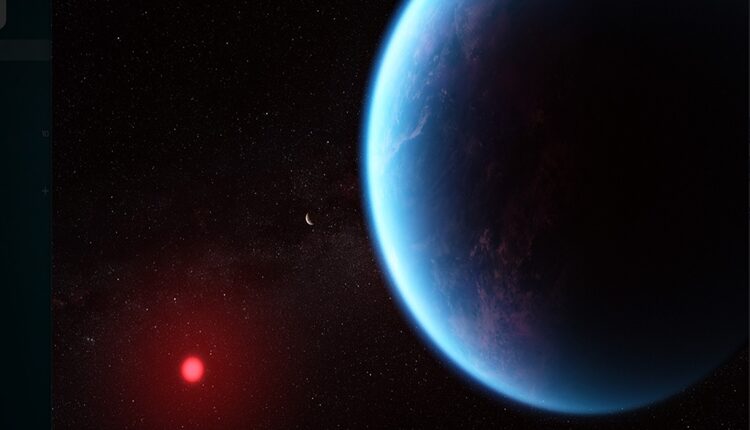NASA’s James Webb Space Telescope in its study of K2-18 b, an exoplanet, discovered the presence of carbon dioxide and methane.This suggests that K2-18b could be a Hycean exoplanet, one which has the potential to possess a hydrogen-rich atmosphere and a water ocean-covered surface. Planets that orbit stars,other than our sun, are called exoplanets. Planet K2-18 b is 120 light years from earth and orbits the cool dwarf star K2-18 a.
It is 8.6 times as massive as Earth and the size lies that of between earth and Neptune.The abundance of methane and carbon dioxide, and shortage of ammonia in this planet support the hypothesis that there may be a water ocean underneath a hydrogen-rich atmosphere.
The observations of James Webb also provided a possible detection of a molecule called dimethyl sulfide (DMS). On Earth, DMS is only produced by life. The bulk of the DMS in Earth’s atmosphere is emitted from phytoplankton in marine environments. Planet k2-18b is within the “habitable zone” of its star, that is conditions are just right – neither too hot nor too cold – for life to exists.
NASA now intends to conduct follow-up research with the telescope’s MIRI (Mid-Infrared Instrument) spectrograph that they hope will further validate their findings and provide new insights into the environmental conditions on K2-18 b.


Comments are closed.